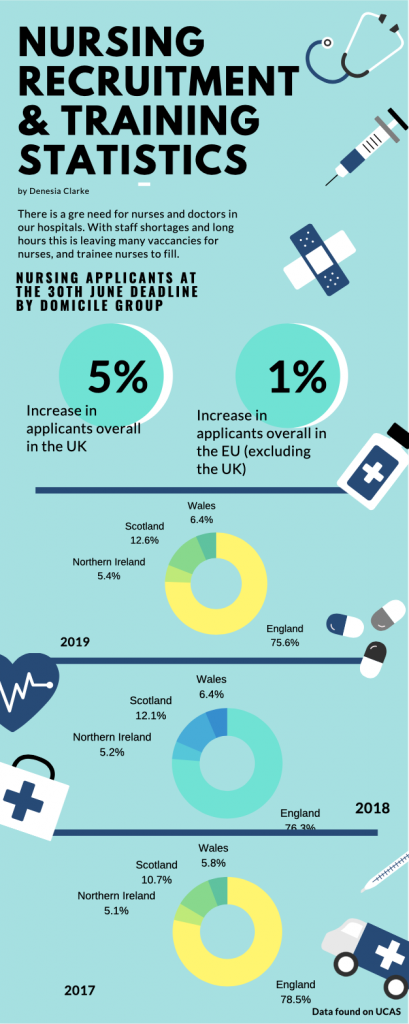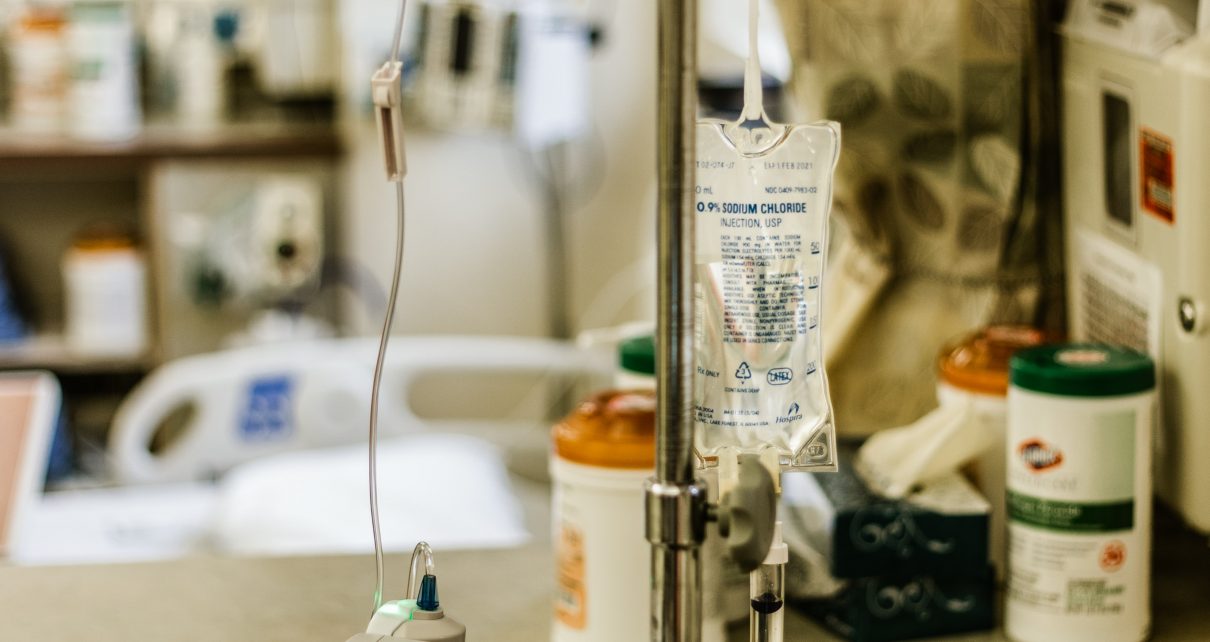Yani is tired and so are many other nurses working across the whole of the UK – This is the reality of nursing.
Day in, day out, working 37.5 hours a week, 3 days plus a week. It’s a continuous cycle of work, sleep, eat and repeat. “On your days off you pretty much feel shattered.” Yani says.
Just before going into work, parking the car and paying an extortionate amount for it. Arriving before the allocated time to check over paperwork and new admissions, “if you don’t document it, you haven’t done it” that’s where most people can go wrong. From there you are on your feet non-stop for the next 12-13 hours looking after patients.
On Yani’s ward it is 7-8 patients per nurse but this isn’t the case for all nurses the safe patient ratio should be 1 nurse and 8 patients maximum in a normal ward. 1 nurse 1 bay and a side room (there’s 6 patients in a bay). In A&E it’s countless, there’s no limit as to how many patients come in. “They’re always busy and always stressed.”
“7 patients is fine, I think and manageable even if it’s busy.” Yani continues.
A spokesperson from the Royal College of Nursing (RCN) said that “nursing staff across the UK are under such pressure that our own employment survey found six out of 10 say they cannot provide the level of care they want to patients.
“Barely a quarter think their pay is appropriate for the level of responsibility and stress they face at work, while three in 10 have suffered physical abuse from patients or relatives in the past 12 months.
“Nursing is a fantastic and rewarding career but the pressure is causing many to leave.
“We need proper financial help for nursing students in every nation of the UK in order to ensure the supply of nurses in the future, and clear legal duties for Governments and NHS leaders across the UK to ensure there are enough nurses to provide safe care to patients.”
In the next few weeks, I will be exploring the nursing recruitment crisis in the UK and Gloucestershire #Crisis https://t.co/YJy2UOGVx7
— Denesia Clarke (@DenesiaClarke) December 6, 2019
After a long 13 hour shift you don’t go home straight away after work.
“Usually there are times [where] we have to stay behind for 30 minutes longer because we are busy completing our tasks or handover takes too long or the night shift comes in late.
But we want to make sure the patients are safe and comfortable before we leave. I stay behind to ensure tasks are completed for example if the patient suddenly needs IV fluids but it’s already 20:00, I’ll make sure to ring an on call doctor to ensure they prescribe their medication during the night and that it is added to their jobs list.” Yani explains.
But is coming home absolutely exhausted worth it?
“Well yes, it is worth helping people but there needs to be a balance really. Especially because nurses do a lot of overtime and they don’t really get paid enough for what they do. For health reasons we also need a break to be honest, and if we don’t look after ourselves then we aren’t taking the advice that we are giving to our patients.”
People have the ability to “make your day a lot more pleasant even if it’s busy [which] kind of makes it all worth it.”
But what is the reason for the decrease in people going into nursing as of before?
One reason suggested is due to the extra nursing grant. Student nurses were able to get a grant to help them with their studies and give them extra help with their living costs but, since the surprise election in 2017 the government has removed this funding.
“The fact that you pretty much do unpaid work as a student for your placements and then just about enough pay when you qualify, if you have kids you’ll have to do a lot of extras just so you can live comfortably. So a lot of potential mature students might dissuade themselves from taking up nursing as they don’t think they can financially afford it, and that it’s worth it financially.
“I wouldn’t have been able to finish uni if I didn’t have a bursary. I had to also do part time work on top of my studies, exams and placements as well which was hard. But it would most likely be impossible to pay £9k a year by myself if I didn’t have the bursary.” Yani adds
The RCN states that “with tens of thousands of vacant nurse jobs in England, serious measures are needed and this grant is a first victory for the campaign that our student nurses are running. This announcement will hopefully encourage more people to apply to a nursing degree by the mid-January deadline. However, the new maintenance grants must be enough to cover students’ actual living costs.
“In the run up to the Budget, we continue to call for our students to be given tuition fee support too. Any barriers for people wanting to enter nursing must be removed.
“The nurses at work today need to feel valued but also confident that the staffing shortages are being addressed with adequate investment. The RCN is calling for at least £1 billion extra per year to be invested in nurse higher education as part of ensuring patients and the public can access safe and effective health and care services”.
We’re delivering on the people’s priorities.
Today we’re introducing a Training Grant to help deliver on our commitment of 50,000 more nurses in the NHS. pic.twitter.com/4L9MAyx35t— Matt Hancock (@MattHancock) December 18, 2019
Yet the Department of Health disagrees that there is a decrease in the amount of people going into nursing as UCAS have shown a 4% increase in acceptances for nursing courses.

And with recent talk of the grant coming back in 2020 this is a positive for nursing students across the UK as well as the future of the NHS. Hopefully this means that there will be more of an intake of people going into nursing compared to previous years.
